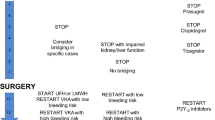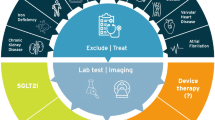Abstract
Background
Although glucagon use in beta blocker toxicity has been recommended for many years, evidence for its safety and efficacy in humans is limited. This study aims to determine the magnitude of effect of glucagon on heart rate (HR) and systolic blood pressure (SBP) in patients with suspected beta blocker toxicity and describe potential adverse effects of the medication.
Methods
We conducted a retrospective, multi-center case series of patients greater than 12 years of age who received glucagon for suspected beta blocker toxicity. The primary outcome was the mean difference in HR from immediately pre- to 20-minutes post-glucagon administration. Secondary outcomes included the median difference in SBP, and occurrence of nausea, vomiting, and hyperglycemia.
Results
A total of 107 patients met inclusion criteria accounting for 144 glucagon orders. The mean difference in HR from pre- to post-glucagon administration was 4 bpm ± 10.6 (95% CI [2.25–5.76], p < 0.001). The median difference (IQR) in SBP was 4.5 (− 6 to 16) mmHg (p = 0.004). Similar increases were observed when patients receiving concomitant vasopressors were excluded. A total of nine glucagon administrations (6.3%) were associated with nausea and 14 (9.7%) with vomiting; however, 52 doses (36.1%) were administered concomitantly with antiemetic medications. Fifteen administrations (10.4%) were associated with hyperglycemia.
Conclusion
Glucagon administration was associated with a statistically significant increase in HR, but a small absolute difference of uncertain clinical significance. A similar observation was noted for SBP. Few patients experienced adverse events.

Similar content being viewed by others
References
Brubacher JR, et al. Beta-adrenergic antagonists. In: Nelson LS, et al., editors. Goldfrank’s toxicologic emergencies. 11th ed. New York: McGraw-Hill; 2019. p. 856–69.
Howland M, et al. Antidotes in depth: glucagon. In: Nelson LS, et al., editors. Goldfrank’s toxicologic emergencies. 11th ed. New York: McGraw-Hill; 2019. p. 870–3.
Benoit B. Glucagon in beta blocker and calcium channel blocker overdoses: a systematic review. J Toxicol Clin Toxicol. 2003;41:595–602. https://doi.org/10.1081/clt-120023761.
Kosinski EJ, Malindzak GS. Glucagon and isoproterenol in reversing propranolol toxicity. Arch Intern Med. 1973;132:840–3. https://doi.org/10.1001/archinte.1973.03650120048009.
Ehgartner GR, Zelinka MA. Hemodynamic instability following intentional nadalol overdose. Arch Intern Med. 1988;148:801–2. https://doi.org/10.1001/archinte.1988.00380040041008.
Lewis M, Kallenbach Germond C, Zaltzman N, Muller F, Steyn J, et al. Survival following massive overdose of adrenergic blocking agents (acebutolol and labetalol). Eur Heart J. 1983;4:328–32. https://doi.org/10.1093/oxfordjournals.eurheartj.a061469.
O’Mahony D, O’Leary P, Molloy MG. Severe oxprenolol poisoning: the importance of glucagon infusion. Hum Exp Toxicol. 1990;9:101–3. https://doi.org/10.1177/09603271900090020.
Smith RC, Wilkinson J, Jull RL. Glucagon for propranolol overdose. J Am Med Assoc. 1995;254:2412. https://doi.org/10.1001/jama.1985.03360170052022.
Fernandes CMB, Daya MR. Sotalol-induced bradycardia reversed by glucagon. Can Fam Physician. 1995;41:659–65.
Salzberg M, Gallagher EJ. Propranolol overdose. Ann Emerg Med. 1989;9:26–7. https://doi.org/10.1016/S0196-0644(85)81081-7.
Peterson C, Leeder S, Sterner S. Glucagon therapy for beta blocker overdose. Drug Intell Clin Pharm. 1984;18:394–8. https://doi.org/10.1177/106002808401800507.
Love JN, Sachdeva DK, Bessmen ES, Curtis LA, Howell JM. A potential role for glucagon in the treatment of drug-induced symptomatic bradycardia. Chest. 1998;114:323–6. https://doi.org/10.1378/chest.114.1.323.
Graudins A, Lee HM, Dino D. Calcium channel antagonist and beta-blocker overdose: antidotes and adjunctive therapies. Br J Clin Pharmacol. 2016;81:452–531. https://doi.org/10.1111/bcp.12763.
Beta blocking agents. IN: POISONDEX System [database on the internet]. Greenwood Village (CO): IBM Corporation; 2022 [cited 2022 Sep 29] Available from www.micromedexcolutions.com. Subscription required to view.
Glucagon [package insert]. Warrendale: Fresenius Kabi USA, LLC; 1960.
Kline JA, Leonova E, Raymond RM. Beneficial myocardial metabolic effects of insulin during verapamil toxicity in the anesthetized caninie. Crit Care Med. 1995;23:1251–63.
Petersen KM, Bøgevig S, Riis T, Andersen NW, Dalhoff KP, Holst JJ, et al. High-dose glucagon has hemodynamic effects regardless of cardiac beta-adenoreceptor blockade: a randomized clinical trial. J Am Heart Assoc. 2020;9:e016828. https://doi.org/10.1161/CIR.0000000000000628.
Funding
No funding was provided.
Author information
Authors and Affiliations
Contributions
LAL conceived the study. AMS and LAL designed the study. AMS performed data collection. AMS and LAL analyzed the data. AMS drafted the manuscript; and AMS and LAL contributed substantially to its revision. AMS and LAL take responsibility for the paper as a whole.
Corresponding author
Ethics declarations
Conflict of Interest
None.
Additional information
Supervising Editor: Michael Levine, MD
Publisher's Note
Springer Nature remains neutral with regard to jurisdictional claims in published maps and institutional affiliations.
Prior Presentations: Data in this manuscript were previously presented at North American Congress of Clinical Toxicology (NACCT) meeting, Virtual, 2021.
Rights and permissions
Springer Nature or its licensor (e.g. a society or other partner) holds exclusive rights to this article under a publishing agreement with the author(s) or other rightsholder(s); author self-archiving of the accepted manuscript version of this article is solely governed by the terms of such publishing agreement and applicable law.
About this article
Cite this article
Senart, A.M., LeClair, L.A. Cardiovascular and Adverse Effects of Glucagon for the Management of Suspected Beta Blocker Toxicity: a Case Series. J. Med. Toxicol. 19, 9–15 (2023). https://doi.org/10.1007/s13181-022-00919-x
Received:
Revised:
Accepted:
Published:
Issue Date:
DOI: https://doi.org/10.1007/s13181-022-00919-x




